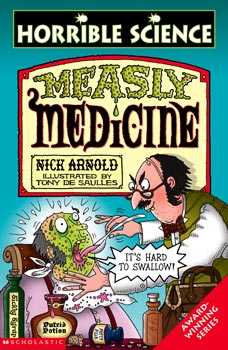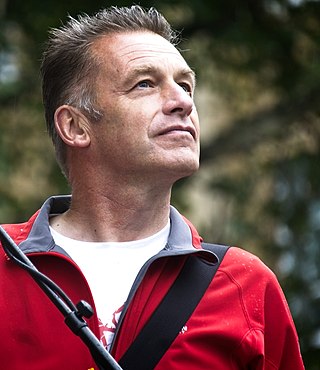
George Raymond Richard Martin, also known as GRRM, is an American novelist, screenwriter, television producer, and short story writer. He is the author of the series of epic fantasy novels A Song of Ice and Fire, which were adapted into the Emmy Award-winning HBO series Game of Thrones (2011–2019) and its prequel series House of the Dragon (2022–present). He also helped create the Wild Cards anthology series, and contributed worldbuilding for Elden Ring.
Network, networking and networked may refer to:

In philosophy, the brain in a vat (BIV) is a scenario used in a variety of thought experiments intended to draw out certain features of human conceptions of knowledge, reality, truth, mind, consciousness, and meaning. Originated by Gilbert Harman, Hilary Putnam turned the scenario into a modernized version of René Descartes's evil demon thought experiment. Following many science fiction stories, the scenario involves a mad scientist that might remove a person's brain from the body, suspend it in a vat of life-sustaining liquid, and connect its neurons by wires to a supercomputer that would provide it with electrical impulses identical to those a brain normally receives. According to such stories, the computer would then be simulating reality and the "disembodied" brain would continue to have perfectly normal conscious experiences, such as those of a person with an embodied brain, without these being related to objects or events in the real world. According to Putnam, the thought of "being a brain-in-a-vat" (BIV) is either false or meaningless. Considered a cornerstone of Semantic externalism, the argument produced significant literature. The Matrix franchise and other fictional works (below) are considered inspired by Putnam's argument.

Cetacean intelligence is the overall intelligence and derived cognitive ability of aquatic mammals belonging in the infraorder Cetacea (cetaceans), including baleen whales, porpoises, and dolphins. In 2014, a study found for first time that the long-finned pilot whale has more neocortical neurons than any mammal studied to date, including humans.
Run(s) or RUN may refer to:
A brain is a biological organ.
Wild Cards is a series of science fiction superhero shared universe anthologies, mosaic novels, and solo novels. They are written by a collection of more than forty authors and are edited by George R. R. Martin and Melinda M. Snodgrass. Set largely during an alternate history of post-World War II United States, the series follows humans who contracted the Wild Card virus, an alien virus that rewrites DNA and mutates survivors. Those who acquire crippling and/or repulsive physical conditions are known as Jokers, while those who acquire superhuman abilities are known as Aces, and those few who acquire minor, insignificant powers not worthy of being called aces are known as Deuces.

Fiend Without a Face is a 1958 independently made British black-and-white science fiction-horror film drama directed by Arthur Crabtree, and starring Marshall Thompson, Kynaston Reeves, Michael Balfour, and Kim Parker.
Brain trust was a term that originally described a group of close advisers to a political candidate or incumbent; these were often academics who were prized for their expertise in particular fields. The term is most associated with the group of advisers of Franklin D. Roosevelt during his presidential administration. More recently, however, the use of the term has expanded beyond politics to encompass any specialized group of advisers aligned to a decision maker.
A Deadhead or Dead head is a fan of the American jam band the Grateful Dead.

Horrible Science is a similar series of books to Horrible Histories, written by Nick Arnold, illustrated by Tony de Saulles and published in the UK and India by Scholastic. They are designed with the intention to get children interested in science by concentrating on the trivial, unusual, gory, or unpleasant. The books are in circulation in 24 countries, and over 4 million books have been sold in the UK alone.

Christopher Gary Packham CBE is an English naturalist, nature photographer, television presenter and author, best known for his television work including the CBBC children's nature series The Really Wild Show from 1986 to 1995. He has also presented the BBC nature series Springwatch, including Autumnwatch and Winterwatch, since 2009.
Dunbar's number is a suggested cognitive limit to the number of people with whom one can maintain stable social relationships—relationships in which an individual knows who each person is and how each person relates to every other person.

Christopher Donald Frith FRS, FMedSci, FBA, FAAAS is a British psychologist and professor emeritus at the Wellcome Centre for Neuroimaging at University College London. He is also an affiliated research worker at the Interacting Minds Centre at Aarhus University, an honorary Research Fellow at the Institute of Philosophy and a Quondam Fellow of All Souls College, Oxford.

Strawberry Shortcake is a cartoon character used in greeting cards originally published by American Greetings. The line was later expanded to include dolls, posters, and other products featuring the character, as well as an extended cast of friends and pets. In addition, the franchise has spawned television specials, animated television series and films. The franchise is currently owned by the Canadian children's television company WildBrain through the holding company Shortcake IP Holdings LLC.

The UCL Queen Square Institute of Neurology is an institute within the Faculty of Brain Sciences of University College London (UCL) and is located in London, United Kingdom. Together with the National Hospital for Neurology and Neurosurgery, an adjacent facility with which it cooperates closely, the institute forms a major centre for teaching, training and research in neurology and allied clinical and basic neurosciences.

Sarah-Jayne Blakemore is Professor of Psychology and Cognitive Neuroscience at the University of Cambridge and co-director of the Wellcome Trust PhD Programme Neuroscience at University College London.








